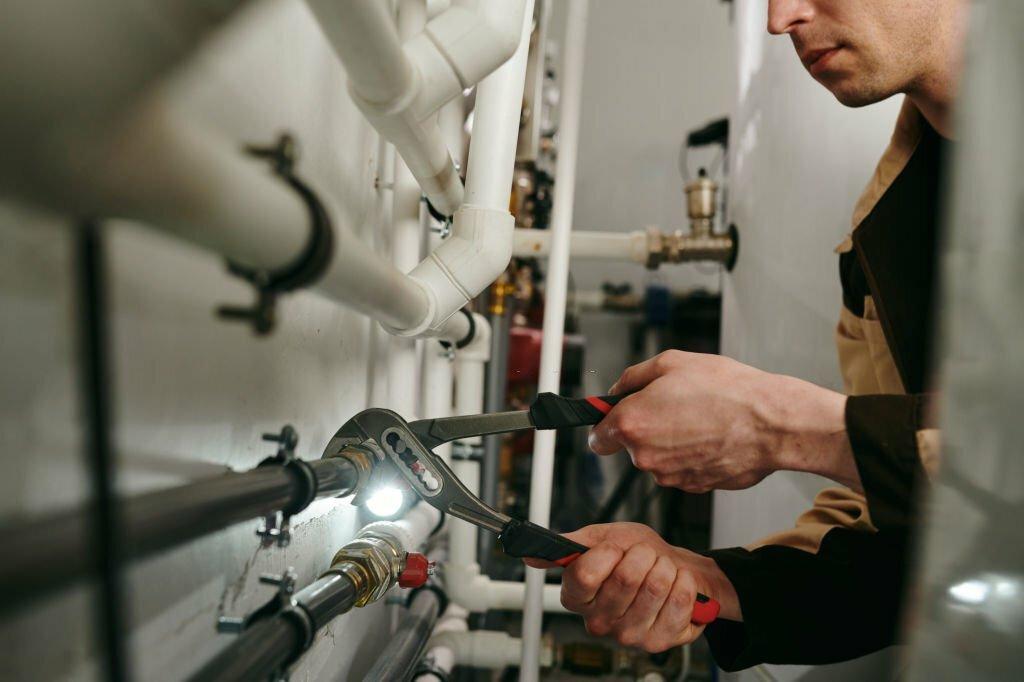Like everything else you use on a daily basis, your plumbing system will eventually wear down and need some maintenance.
Plumbing issues may emerge at any moment and create major inconveniences and even health risks, so getting them checked regularly is essential.
Routine domestic plumbing services are essential in order to avoid a plumbing disaster. The plumbers will inspect and solve the most common plumbing problems.
We depend on our plumbing system every day. Therefore, it’s crucial to get it examined regularly and for that, we should only avail the services of licensed plumbers.
Let’s deep-dive into the possible advantages of routine plumbing maintenance in the following sections.
Why Perform a Plumbing Inspection?
If you want to save time and money in the long run, having a professional plumber evaluate your system regularly should be at the top of your list of home maintenance tasks. It’s far better to find a plumbing problem during an inspection than to come home to a flooded basement or a broken water heater when you switch on the shower.
If you get your residential plumbing services regularly, you may catch problems early on, preventing them from becoming catastrophic.
Common plumbing issues are often overlooked until they become catastrophic. A licensed plumber can help you avoid plumbing issues and keep your pipes, sinks, and tubs in good working order. The most straightforward solution to the following typical problems is to call a plumber:
- The faucets are malfunctioning.
- The cost of our water supply has skyrocketed.
- The duration of hot water has decreased.
Regular Home Plumbing Inspections Have Many Advantages
Here are some benefits of scheduling regular plumbing inspections:
Water Pressure and Increase in Flow
Maintaining enough water pressure and flow through the pipes might help prevent pipe bursts. With enough pressure, water flows without causing harm, and the ideal volume of water is maintained.
Guaranteed Safe Drinking Water and Clean Indoor Air
Because plumbers routinely check and clean water filtering systems, the water from sinks, tubs, and showers is always clean and sanitary. Home plumbing inspections fix leaks and other plumbing problems that contribute to the growth of mold spores and unpleasant smells, hence improving indoor air quality.
Longer Service Life for Appliances
Premature wear and tear is inevitable for poorly maintained fixtures. They can function efficiently for their entire expected lifespan if cared for appropriately. They may survive even longer with the help of a professional plumber who performs routine inspections.
Reducing the Likelihood of Plumbing Disasters
Plumbing crises may arise when you least expect it. Preventing them should be your first concern because they pose risks to your property and health. If you get regular plumbing inspections done, there will be less chance of sewage backups, floods, faulty shut-off valves, and broken pipes.
Lower Water Bills and Better System Performance
Come to think of it, having plumbers evaluate your home often is also a financially prudent move. An experienced plumber improves the effectiveness of your plumbing system by addressing issues, including dripping fixtures, broken pipes, and overflowing toilets. Reduced water and energy waste means cheaper utility costs every month.
Minimal Likelihood for Expensive Maintenance
Plumbing systems are interconnected, much like the organ systems in the human body. When one component is compromised, the whole system suffers and eventually collapses. Inspections of your plumbing systems regularly may save you money by identifying problems at an early stage, before they take a turn for the worse.
What Things Should A Plumbing Inspection Cover?
A qualified plumber will thoroughly examine your plumbing system during an inspection. Regular plumbing inspections are essential for maintaining efficient systems and warding off the need for expensive repairs.
The following are essential components of any comprehensive plumbing inspection:
-
WCs, sinks, and baths:
Hidden leaks, drainage issues, and mineral or corrosive deposits that restrict water flow might be discovered during routine inspections. Repairs cost a lot of money if they go unnoticed for too long.
-
Bathrooms:
Over time, cracks, leaks, and loose fittings may develop, but if you catch them early, you can save money on costly fixes. Flaps need to be checked and usually changed regularly. Inefficient ones might waste as much as 200 gallons of water daily.
-
Domestic water heaters:
Make sure your traditional tank water heater is running correctly and effectively since it is likely the single largest consumer of energy in your house. At least once a year, it’s better to inspect tanks for leaks and sediment accumulation. You must also check the pressure and the temperature control valve for security purposes.
-
Freight train breakdowns:
The main sewage line should be inspected often because of the high expense of fixing any issues that may occur. Potential problems include tree roots, sludge buildup, foreign objects, fractures, and offset or faulty joints.
One yearly examination is reasonable in light of the savings on maintenance costs.
The best approach to ensure the continued health of a home’s plumbing system and keep plumbing hassles at bay is to have regular inspections performed. Fixing even minor problems in the plumbing systems right away may save homeowners hundreds of dollars.

